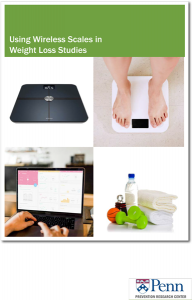New Research on Smokers’ Behaviors: Two Studies Led by PRC Researcher Andrew Strasser

PRC Researcher Andrew Strasser, PhD, recently published two studies about the behaviors of smokers which show that low-nicotine cigarettes may not significantly change smokers’ habits and that smokers tend to ignore warning label boxes in tobacco advertisements.
In a randomized clinical trial where some smokers were given RNC (reduced nicotine content) cigarettes, those smokers used more cigarettes and had a higher smoke exposure on a daily basis. The findings in Cancer Epidemiology, Biomarkers, & Prevention suggest that RNC use does not necessarily reduce smoking behaviors or biomarkers, althought the lowest RNC level tested may reduce harm exposure.
A study utilizing eye-tracking technology showed that the majority of smokers do not look at the warning label box found in tobacco advertisements, nullifying the value of warning boxes for informing smokers about tobacco risk. When risk information was included in the body of the advertisement, smokers were more likely to look at and retain information about smoking risk. The findings in Drug and Alcohol Dependence support reevaluation of how risk warnings are presented.
“The Tobacco Control Act allows the FDA to regulate tobacco product marketing and advertising so that people are not mislead about harm; and, the FDA can also set standards on cigarette constituent levels, including nicotine, if scientific evidence supports it will benefit public health,” said Strasser. “While these studies are scientifically quite different, their results may collectively inform future policy and law by regulating the ways RNCs can be marketed, as well as identifying optimal nicotine levels in cigarettes to reduce exposure to the dangerous substances they contain.” The researchers suggest these results could support regulation for how tobacco products are marketed.


